Inequality
Showing 1 to 30 of 55 results

The right to health of miners in Botswana
This brief case study examines the use of OPERA, CESR’s research framework, to assess the right to health of miners and ex-miners in Botswana.

CEWLA and CESR Submit a Follow up Report on Egypt to the CEDAW’s 80th Session
The report analyzes issues raised by the Committee related particularly to women’s enjoyment of economic and social rights, in light of the pandemic and in the context of the IMF-backed economic reform program in Egypt.
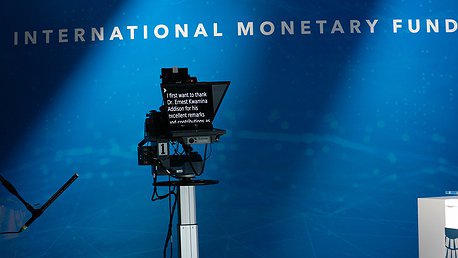
IMF annuals side-event: The Role of IFIs in a World of Intersecting Conflicts and Crises in the MENA Region
Taking place 5 October 2020, this session will assess IFI's policies in contexts of crises and conflicts, mainly in the MENA Region, by examining the existing policies and their impact on inequality.
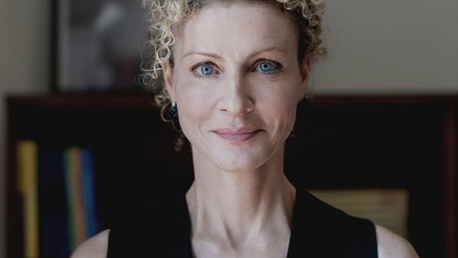
Truths and Lies about this Pandemic: What are the Lessons for Health Rights and Social Justice?
In a blog for the Global Intiative for Economic, Social and Cultural Rights, former CESR board member Alicia Ely Yamin argues that the pandemic is not “a great equalizer” but rather an "x-ray" of preexisting social inequalities and rights violations driven by neoliberalism.

Time for a Rights-Based Global Economic Stimulus to Tackle COVID-19
Safeguarding human rights in economic responses to the COVID-19 crisis demands governments finally lay to rest the prevailing dogma of austerity.
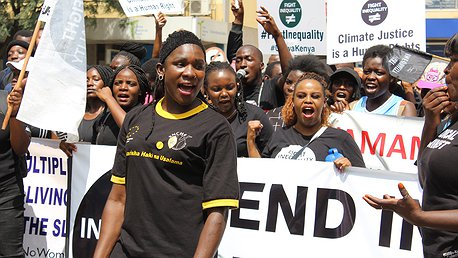
What Place for Human Rights in the Growing Movement against Inequality?
How can human rights tools and approaches help amplify the efforts and experiences of those who face inequality on a daily basis?
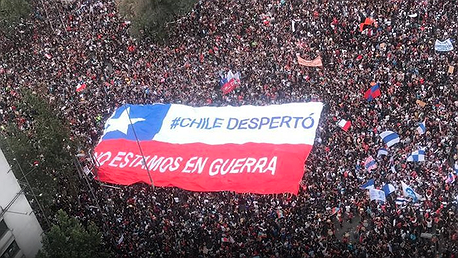
Human Rights and the Global Protests: Addressing Systems as well as Symptoms
Human rights advocates should be as concerned with the economic injustices giving rise to recent worldwide demonstrations as with the repressive responses to them.
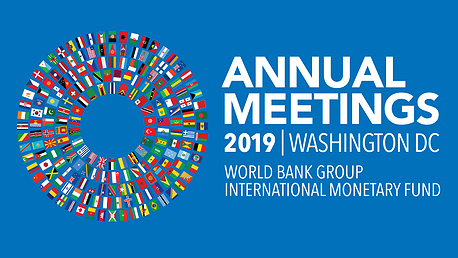
Lessons from Ecuador: Challenging Austerity and Human Rights Erosion at the IMF
CESR will be at the World Bank/IMF Annual Meetings this week, challenging the IMF’s global role in driving austerity measures that result in the steady erosion of human rights in countries such as Ecuador.
The IMF and Right to Food: Conditionality on Food and Agriculture in the Arab Region
This session on Thursday, October 17th at the IMF/World Bank Annual Meetings will discuss IMF-imposed policies in the Arab Region that impact agricultural policies and achievement of the right to food from regional and national perspectives, as well as propose alternatives.
The IMF and Inequalities: Tensions between Structural Adjustments and Structural Transformations
This discussion on Thursday, October 17th at the World Bank/IMF Annual Meetings debates the balance between IMF-advised structural adjustments and the need for systemic changes in financial governance, to ensure governments can achieve SDG 10 and tackle inequalities on multiple levels.
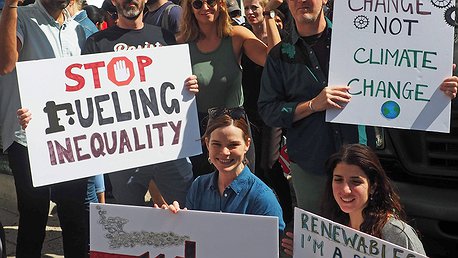
Striking at the Roots of the Climate Crisis
The climate crisis is also a human rights crisis that requires a courageous, informed and robust response from the human rights community.
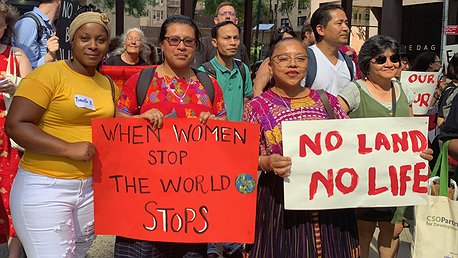
Technocratic Fiddling While the Planet Burns: Towards a Higher Level of Ambition for the HLPF
The 2019 HLPF had admirable rhetoric, but not much evidence of serious efforts at comprehensive implementation, and a host of major flaws and limitations to contend with.
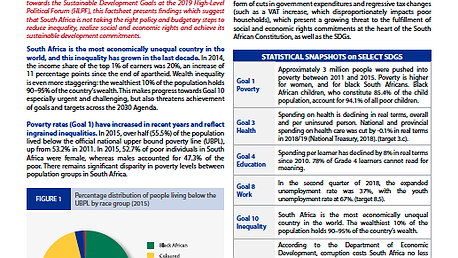
South Africa: Is Resource Mobilization Reducing Inequality?
As South Africa presents its review at the High-Level Political Forum (HLPF) in New York, a rights-based snapshot of obstacles and opportunities is put forward by CESR, the Institute for Economic Justice and Section 27.
FIGHTING INEQUALITY: Time to be Bold.
How to Tackle Inequality, Realize Human Rights and Achieve SDG 10 LINK TO EVENT FLYER Event Title: FIGHTING INEQUALITY: Time to be Bold. How to Tackle Inequality, Realize Human Rights and Achieve SDG 10
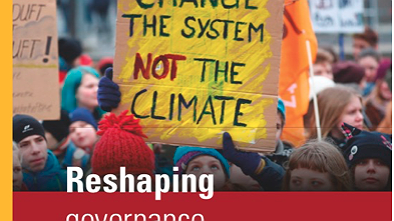
Spotlight on Inequalities at High-Level SDG Forum 2019
The Spotlight on Sustainable Development Report 2019 asserts that successful implementation of the SDGs requires more holistic and more sweeping shifts in how and where power is vested, including through institutional, legal and political commitments to realizing human rights.
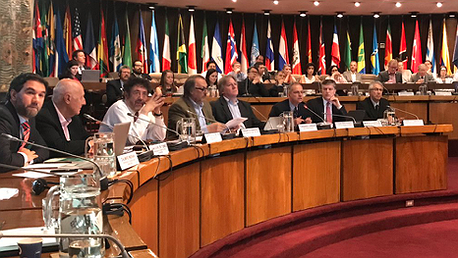
The State of Tax in Latin America: Massive Evasion and Avoidance Block Human Rights and Development
States are obligated to mobilize their maximum available resources to progressively advance rights and reduce disparities between the wealthy and the most disadvantaged.
Gender, Transnational Inequalities Stressed at Prep Meetings for 2019 HLPF on Sustainable Development
In late February 2019, Kate Donald (the Director of CESR’s Economic and Social Policy program) participated in an expert meeting organized by UN Women, the United Nations Office on Drugs and Crime, and the UNFCCC Secretariat in Vienna, Austria. “Tackling global challenges to equality and inclusion through the gender-responsive implementation of the 2030 Agenda for Sustainable Development” aimed to provide a gender perspective on interlinkages between Goals 10, 13 and 16.
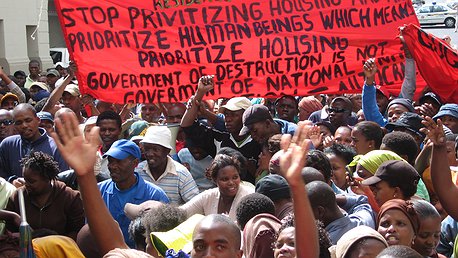
Legacies of apartheid: South African austerity perpetuates the inequalities of decades past
The South African government’s adoption of austerity measures now perpetuates many of the same inequalities that apartheid upheld many years ago.
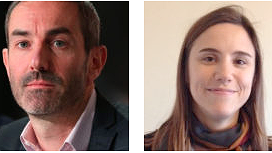
Are Human Rights Relevant to Economic Inequality? A response through the lens of social protection
Ignacio Saiz and Kate Donald's submission to Social Protection and Human Rights discussed the relevance of human rights to economic inequality debates.
%20_2.png.458x258_q85_box-0%2C2%2C703%2C397_crop_detail.png)
South Africa urged to end austerity measures amid "unacceptably high levels of inequality"
Civil society inputs documenting rights deprivations in health, education, tax policies were crucial to CESCR recommendation.
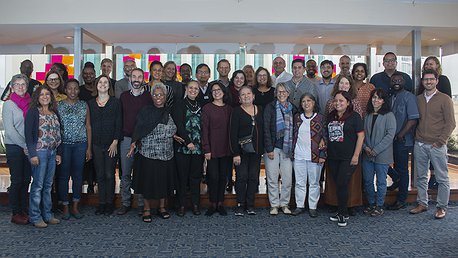
Beyond Boundaries: allying human rights with other struggles for economic and social justice
Groundbreaking gathering of diverse social justice movements affirmed the need to maintain a focus on long-term systemic change and a commitment to reciprocity and mutual learning.
%20.png.458x258_q85_box-0%2C2%2C703%2C397_crop_detail.png)
Civil society organizations urge South Africa to end austerity measures and combat inequality
As South Africa presents its first human rights compliance report to the United Nations Committee on Economic, Social and Cultural Rights, CSOs call for a human rights-based approach to fiscal and economic policy, steps to tackle corruption and increased funding for healthcare and education.
Defenders’ Forum reaffirms indivisibility of human rights and of movements fighting for them
CESR’s Executive Director Ignacio Saiz joined more than 60 human rights defenders from across the globe at the annual Human Rights Defenders Forum hosted by the Carter Center in Atlanta, Georgia from 21-24 July. This year’s Forum, entitled “Restoring Faith in Freedom”, included a focus on economic and social rights and their role in restoring the social contract.
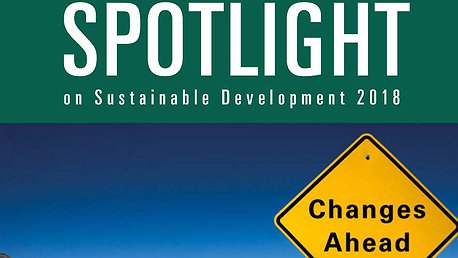
Sustainable development off-track without fundamental policy changes
Spotlight 2018 reports that the "world is off-track in terms of achieving sustainable development..."
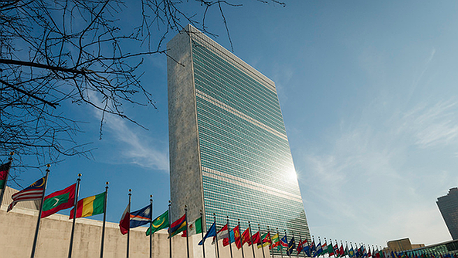
High-Level Political Forum 2018: An opportunity to bring the SDGs back on track?
At the High Level Political Forum on Sustainable Development at the UN, CESR will advocate for reorienting SDG implementation so it is compatible with human rights and fiscal justice.
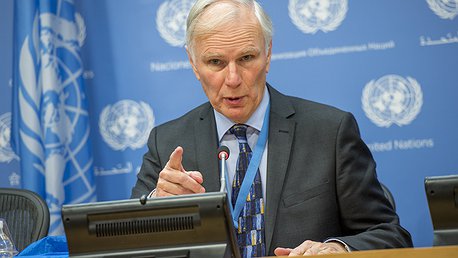
UN poverty expert urges the U.S. to “get real about taxes”
U.N. poverty expert Philip Alston's report on U.S. poverty reflects CESR concerns about effects of tax cuts on human rights and inequality.
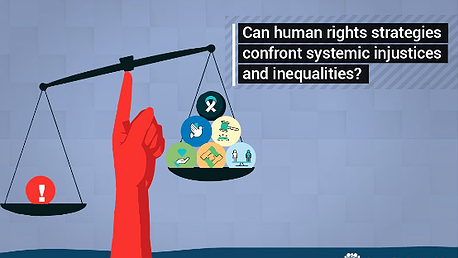
Rising inequality is a wake-up call for human rights
Media: Ignacio Saiz writes in Open Global Rights that the challenges economic inequality poses for human rights are not the death knell for the movement but a wake-up call for a more holistic approach.
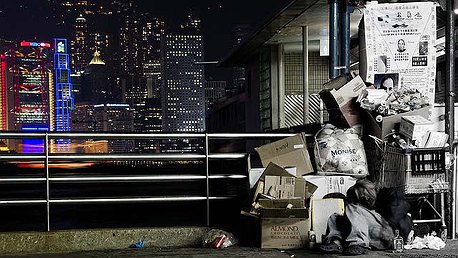
Human rights must rise to the challenge of growing inequality, not retreat in defeat
The challenges economic inequality poses for human rights are not the death knell for the movement but a wake-up call for a more holistic approach.

Human Rights in an Age of Austerity: casualty or compass?
Media: Preventing another “lost decade” will require us to see human rights values not as merely collateral damage of economic policy, but as cogent and universal norms actively guiding tough fiscal dilemmas in the public’s interest.
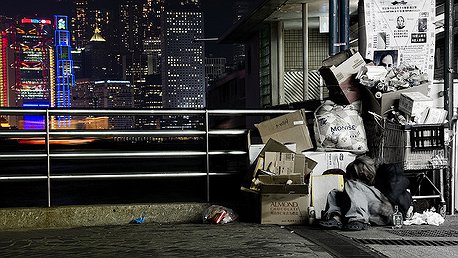
Economic inequality and human rights: towards a more nuanced assessment
The challenges facing human rights are not the death knell for the movement, but a wake up call for a more holistic approach.